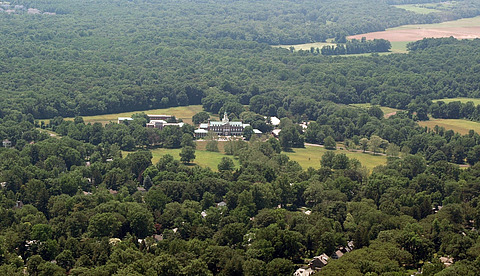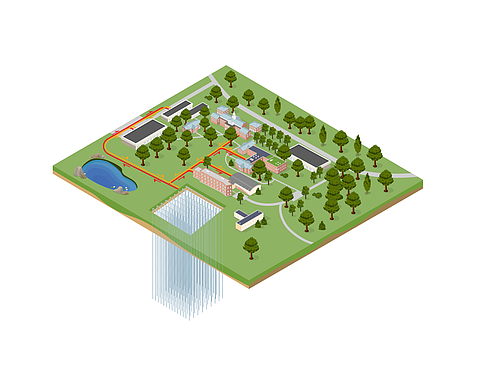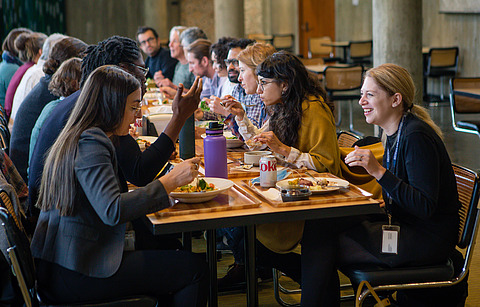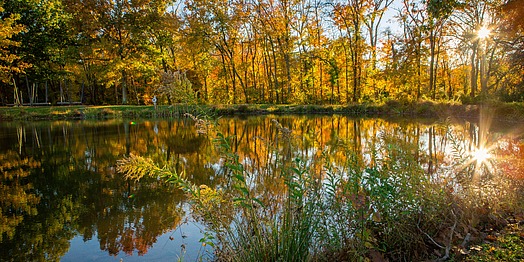Sustainability at IAS
Since its founding, the Institute has recognized the importance of a flourishing environment and its role in its preservation. These are some of the Institute’s sustainability initiatives that help protect the local landscape and beyond.

Preserving Land
As you approach the Institute campus, whether by car, bicycle, or on foot, the sense of space provided by fields, farm, and forest shapes the lives of its inhabitants and serves as one of the great gifts to our community—not only the people of Princeton, but all its creatures great and small.
The Institute Woods and Farmlands, which comprises nearly 550 acres, were permanently conserved in 1997, representing about 79% of the 693 acres owned by the Institute. The permanent easement unites nearby preserved properties and protects a fifty-six mile long greenway network through central New Jersey critical for the feeding and nesting of two hundred species of birds on the Atlantic flyway. It also protects a unique laboratory for studies of forest succession, and gives scholars protection from, in the words of Founding Director Abraham Flexner, “the noise and bustle of urban or commercial life.” The Institute Woods is enjoyed year-round by bird watchers, walkers, runners, and cross-country skiers from the great Princeton community.
The Institute also played a key role in the founding of the nearby Princeton Battlefield State Park and has a long history of supporting its preservation and expansion. For more information, visit the Campus & Lands page.

Conserving Energy
The Institute's geothermal system sustainably heats and cools the campus. The system does not produce any carbon monoxide or any greenhouse gasses and is projected to reduce the Institute’s annual energy use by 2.83 million kilowatt-hours (kWh) and 226,000 therms, which is equivalent to 3,200 metric tons of CO2 emissions or the greenhouse gas emissions from 696 passenger vehicles or the energy use of 385 homes.

Minimizing Waste, Eco-Friendly Dining, and Electric Vehicles
The Institute's waste compactors reduce the space that non-recyclable waste consumes at the local landfill. They also limit the amount of fossil fuel consumed through less frequent trash pickups, helping to decrease the Institute's carbon footprint. Additionally, the Institute has installed Level 2 charging stations on campus in order to provide infrastructure for electric vehicles, which help to reduce air pollution and smog. In the dining hall, eco-friendly restaurant supplies are used, including 100% biodegradable bamboo utensils and plates, banana leaves for packaging food, and bagasse products. Moreover, the Institute has switched to bottleless water coolers, reducing the use of plastic.
